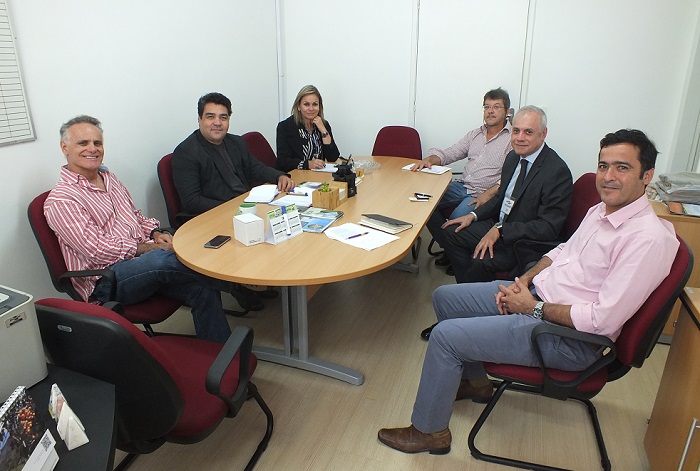Partnership with Ethiopian institute is discussed at Embrapa Soils
Partnership with Ethiopian institute is discussed at Embrapa Soils
Photo: Fernando Gregio

From the left: Enio Fraga da Silva, José Carlos Polidoro, Margareth Simões, Wenceslau Teixeira, Luiz Eduardo Pedroso e Fabiano Balieiro.
On Monday (Jul 16), there was a meeting to discuss a partnership Embrapa Soils is articulating with the Ethiopian Institute of Agricultural Research (EIAR), under the coordination of the Brazilian Cooperation Agency (ABC), to transfer to the African country – the second most populous country in Africa, with 100 million inhabitants – Brazilian expertise in acid soil management. The meeting gathered researchers from the corporation and the newly appointed Brazilian ambassador to Ethiopia, Djibuti and South Sudan, Luiz Eduardo de Aguiar Villarinho Pedroso.
In june, Embrapa Soils' deputy head of research and development, Vinicius Benites, and the researcher Enio Fraga da Silva visited Ethiopia to learn more about the agricultural reality of the country and to start negotiations with the local ministry of agriculture.
Nearly 50% of Ethiopian soils are acid, with low pH and low yield. Brazil has expertise in acid soil management, with a history of success in the expansion of the agricultural frontier to the Cerrado biome from the 1970s on. The partnership's goal is to use Brazil's experience of using limestone to correct soil acidity while adapting the application and distribution of the input to conditions in the African country. In Ethiopia, the acid soils are not Latossolos like Brazil's, but rather Nitossolos, according to the Brazilian Soil Classification System (not Ferralsols but Nitisols, according to WRB/FAO's).
The technical cooperation project stipulates the identification and exploration of limestone sources in Ethiopia; estimates of the necessary amounts of the input for soil correction in different areas; and the sharing of good agricultural practices on soil correction through technical capacity-building.
Other meeting participants who represented the corporation were the head of Embrapa Soils, José Carlos Polidoro, and the researchers Margareth Simões, Enio Fraga da Silva, Wenceslau Teixeira, and Fabiano Balieiro.
Translation: Mariana Medeiros
Fernando Gregio (MTb 42.280/SP)
Embrapa Soils
Press inquiries
fernando.gregio@embrapa.br
Phone number: +55 21 2179-4622
Further information on the topic
Citizen Attention Service (SAC)
www.embrapa.br/contact-us/sac/
